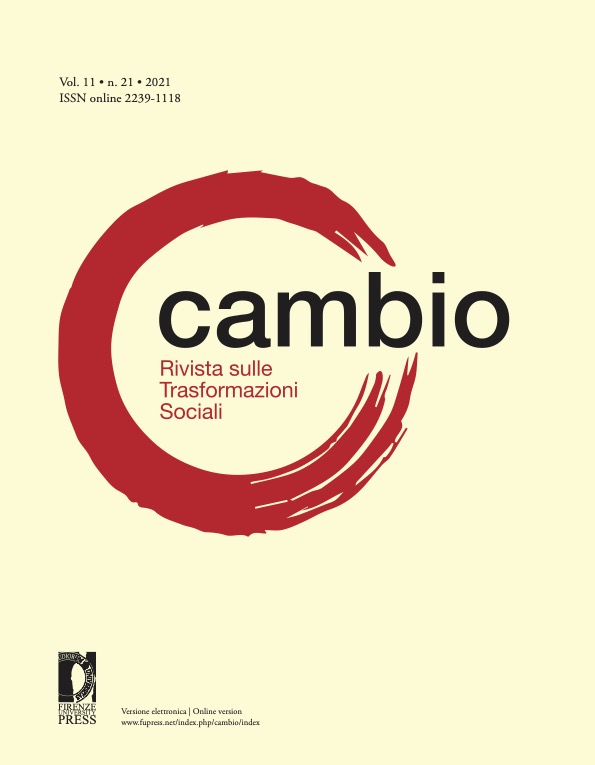Published 2021-11-30
Keywords
- Zero Waste,
- environmental conflicts,
- waste treatment,
- socio-technical infrastructures,
- discursive practices
- Environmental sociology ...More
How to Cite
Abstract
The aim of the article is to analyse the social transformations produced and observed in the field of waste management. In particular, the focus is on the «Zero Waste» strategy, which has been proposing for at least two decades at a global level an alternative model of waste governance to the one centred on incinerators and landfills. The article proposes a theoretical framework to describe the genesis of «Zero Waste» as a discursive practice, proposing to observe jointly its characteristic symbolic, technological and organisational elements. In reporting the results of an ethnographic research conducted on the case of «Zero Waste» in Italy, the article also focuses on the processes of knowledge exchange between social movements, local administrations, universities and municipalised companies, the conjunctions between ecological movements and movements for the commons, the start of processes of remunicipalisation of local public services starting from a new strategy of legitimation of the public vs. the private, and the progressive institutionalisation of political ecology in the European and local policy arena.


